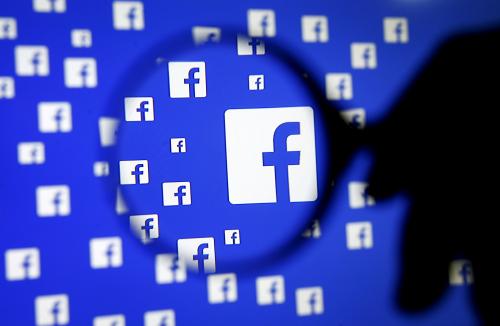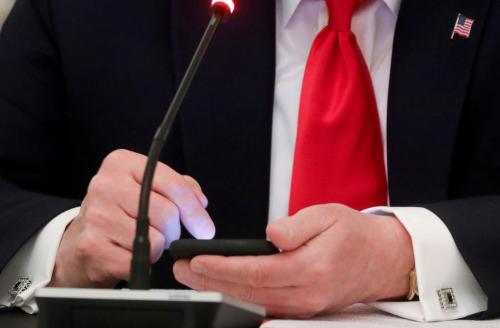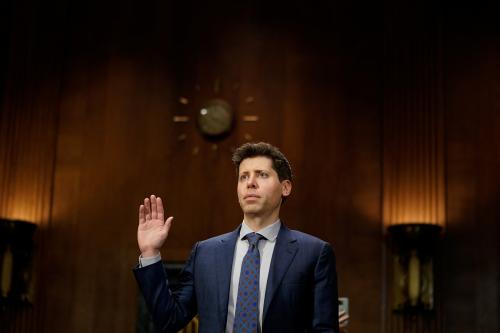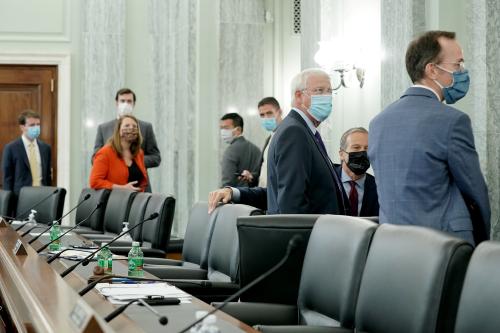This week’s district court decision rejecting the Federal Trade Commission’s (FTC) antitrust complaint against Facebook might prove to be a Pyrrhic victory for the tech giant. Even though investors reacted by increasing Facebook’s market value to over $1 trillion, the ruling increases the power of voices in Congress calling for regulatory change to deal with the power of big tech.
The order “shows that antitrust reform is urgently needed,” said Rep. Ken Buck (R-Colo.), the ranking Republican member on the House Judiciary Committee antitrust panel. Last week, Buck joined fellow Republican Reps. Matt Gaetz (R-Fla.) and Burgess Owens (R-Utah) and all Committee Democrats except Reps. Zoe Lofgren (D-Calif.), Eric Swalwell (D-Calif.), Lou Correa (D-Calif.), and Greg Stanton (D-Ariz.) in approving a group of six antitrust bills aiming to rein in the power of Facebook and other tech giants.
What the court ruling says
Three elements in the court decision bolster the case for change by revealing how US antitrust law as conceived and practiced today is unable to cope with the growing challenges of Big Tech. The many references in the opinion to “lawful monopolies” underscore that current antitrust doctrine, a durable monopoly is not illegal. Indeed, current doctrine also encourages companies to treat the goal of a permanent lawful monopoly as an incentive to develop an attractive new technology or service.
Far from treating a durable monopoly as a problem to be addressed through vigorous government action, antitrust today asks only whether the monopoly has been obtained or maintained by unfair methods of competition rather than through competition on the merits. But if network effects are strong, as they are in digital markets, the natural forces of competition will produce one—or at best a few—suppliers. Antitrust law would leave intact such a naturally occurring permanent monopoly. In these circumstances, pro-competitive remedies have to come from an industry regulator, not from antitrust law enforcement.
Critics inside and outside Congress see the market positions of Facebook in social media, Google in search, Amazon in online retailing, and Apple and Google in mobile app infrastructure as the sources of unfair treatment for dependent business, and as aggravating conditions for privacy violations, information, and democratic disorders. But as the court’s decision makes crystal clear, current antitrust law simply does not view a dominant market position in and of itself as a problem.
The second element in the court ruling that provides Congress with a further rationale for reform is its insistence that lawful monopolies have no duty to deal with competitors. The FTC (and the states in a separate action that the court also rejected) sought an injunction to require Facebook to interconnect its social networking platform with companies seeking to provide similar services. This injunction is needed, the FTC argued, because in 2013 Facebook established a policy of not allowing interoperability with competitors and withdrew access it had previously granted certain companies. It abandoned this policy in 2018 out of fear that it would create antitrust liability, the FTC said, but the company could reinstate it at any moment. The FTC argued that this policy was anticompetitive and asked for an injunction to prevent its return.
The court ruled, however, that Facebook’s policy of refusal to interconnect with competitors was perfectly legal. It carefully rehearsed contemporary antitrust jurisprudence explaining that except in the very narrowest of circumstances Facebook, even if it has monopoly power, has no responsibility to help its competitors by opening its system to them. The narrow circumstances would apply if Facebook had first granted access to a competitor and then withdrawn it, and if this access was advantageous to itself and to its users. But the court slammed the door on this possibility, since the last time Facebook granted access and then withdrew it was over seven years ago. There is no need for an injunction, the court concluded, since no violation of the law is ongoing or is about to occur.
Finally, the court ruling suggests that Facebook’s lack of competitors is not sufficient evidence that it has a monopoly. During a Senate hearing in 2018, when Sen. Lindsey Graham (R-S.C.) asked whether there was an alternative to Facebook in the private sector, Mark Zuckerberg struggled to name a single Facebook competitor. But the court would have none of this, remarking that it was unconvinced by the “conventional wisdom that Facebook is a monopolist.”
Where, the court asked, are the sales figures demonstrating that Facebook has a large share of the revenue generated in the social networking marketplace? Since Facebook doesn’t charge users, it has no revenue from them. So, such a measure would be unavailable to the FTC.
The court seemed to reject a percent of monthly or daily users as a measure of market share, since users might have accounts on multiple services and might visit them often and spend most of their social networking time there. It also rejected a measure of time spent on Facebook, arguing that even if users spent all their time on Facebook this might not be time spent in social networking since Facebook provides services that might not be properly characterized as “social networking.” If a user watched a video on Facebook, is that time engaged in social networking or watching television?
Such nitpicking might seem bizarre, hostile, or deliberately obtuse. But the court rejected the idea that its ruling was based on some “arcane feature of antitrust law,” and it is entirely correct. Questions of this kind are highly typical of antitrust proceedings, where cases often turn on very detailed and technical questions of how a market is defined and how market shares are calculated.
The FTC has been given 30 days to amend its complaint and might be able to find measures that would convince the court that Facebook has monopoly power. But the court’s rejection of its interoperability remedy seems insuperable unless Facebook grants and then withdraws access to a competitor, a step that seems highly unlikely in today’s highly charged atmosphere.
The impact of recent congressional legislation
Three bills approved by the House Judiciary Committee last week would address, to some extent, the failings of current antitrust law so clearly revealed in this court decision. In doing so they create a regulatory structure for ongoing agency supervision of the conduct, corporate structure, and permitted lines of business of the tech giants.
Instead of relying on a determination of market power, with the Byzantine complexity and uncertainty of typical antitrust proceedings, the bills define the group of companies to which its measures apply. Covered platforms include websites, online or mobile applications, and operating systems providing social media; online retailing; and search services when companies providing these services have 50 million active US users or 100 thousand active monthly US business users, a sales or market cap greater than $600 billion, and function as critical trading partners for businesses users. Thus, under these bills, Amazon, Google, Facebook, and Apple would all be brought under regulatory control.
Instead of soliciting a court’s approval for remedies once an antitrust violation has been demonstrated, the bills mandate the FTC to impose certain statutory restrictions aimed at addressing two separate problems.
One problem is unfair treatment of merchants by a covered platform. The fixes for the first problem of unfair treatment are nondiscrimination rules that are imposed by the American Innovation and Choice Online Act, the corporate restructuring requirements that are imposed by the Ending Platform Monopolies Act, or both. The other problem is the lack of alternatives to covered platforms. The fix for the second problem of no real alternatives is a set of pro-competition rules including data portability and interoperability that are imposed by the ACCESS Act.
The nondiscrimination rules would allow companies to be players on their own platform but would regulate any conflicts of interest to ensure the platform does not unfairly favor its own products and service. In contrast, the corporate restructuring bill would restrict the ability of companies to participate on their own platform.
Corporate restructuring is not clearly defined in the bill. It would mean at least that Amazon could not sell its private label products on its marketplace. It might also require Amazon to run its vendor program through a separate website, a structural separation requirement that mimics what the Federal Communications Commission put in place for telephone company participation in the computer industry back in the 1980s. But it could also mean a line of business restriction that would prevent Amazon from operating a marketplace at all. Here, the historical model is the line of business restrictions imposed on the Bell Operating Companies after the AT&T breakup in the 1980s.
As the House bills move forward, the corporate restructuring bill needs to be clarified and harmonized with the nondiscrimination bill. The most logical way for this to happen is to give the FTC the authority to impose increasingly stringent measures on platforms, starting with nondiscrimination rules, moving to structural separation, and finally to line of business restrictions if the less stringent measures fail to mitigate unfair business conduct.
The ACCESS Act bypasses the current antitrust dogma that monopoly businesses have no duty to deal with competitors by imposing data portability and interoperability requirements on covered platforms. The idea is to let users take their information with them to another provider and allow messages or posts originating on one platform to appear to users on other platforms. The bill might also allow merchants to simultaneously list their products on several e-commerce platforms. The models here are once again drawn from the effort to introduce competition into the telecommunications industry, where the FCC set up and supervised requirements for carriers to provide for number portability and for technical interconnection arrangements among competing carriers. Under the bill, the FTC must set up technical committees to help it determine what these requirements mean in practice for specific digital businesses.
Much work needs to be done on these bills before they are ready to move forward, and there is some indication that further progress in the legislative process will be held up until improvements are made. This is all for the good. The speed with which the bills moved through the House Judiciary Committee meant that there was little time for thoughtful amendments.
But delay for needed improvement does not mean that the reform effort should be abandoned. The court’s decision to dismiss the FTC’s Facebook complaint indicates that Congress cannot rely on current antitrust law to do the work of bringing the tech giants under control. Only a thoughtful, balanced, and clear mandate to a regulatory agency to protect dependent businesses and promote competitive alternatives can restore competitive conditions to today’s digital industries.
Amazon, Apple, Facebook, and Google are general, unrestricted donors to the Brookings Institution. The findings, interpretations, and conclusions in this piece are solely those of the author and not influenced by any donation.










Commentary
Facebook’s FTC court win is a much-needed wake-up call for Congress
July 7, 2021